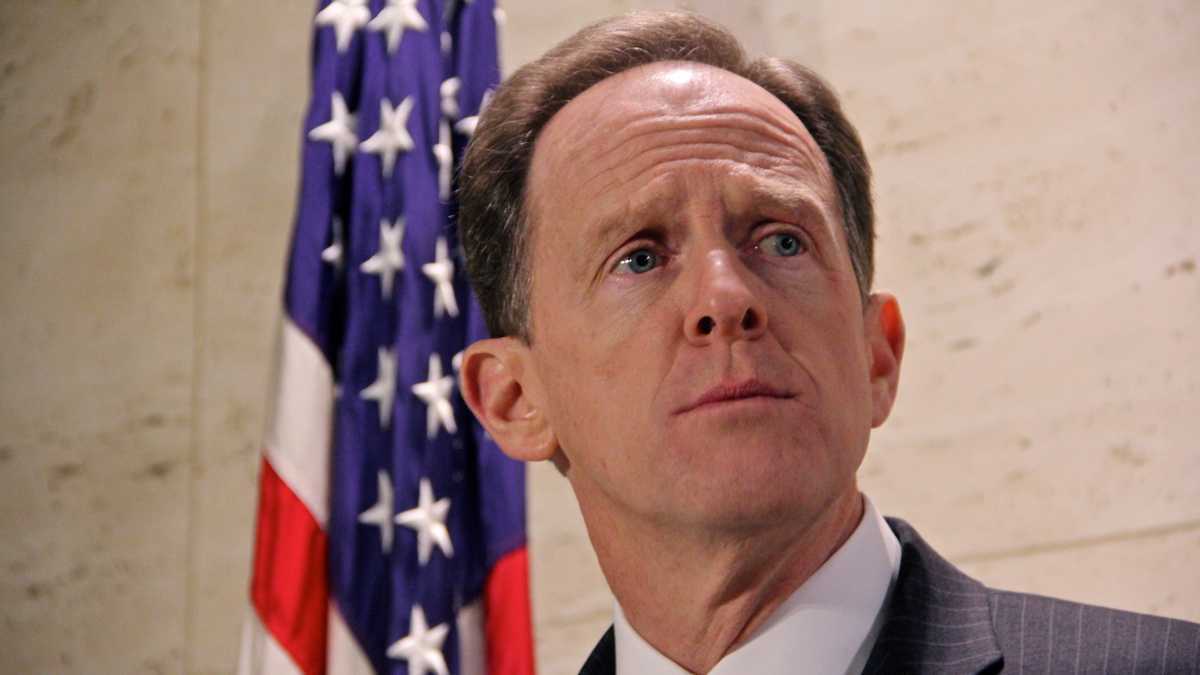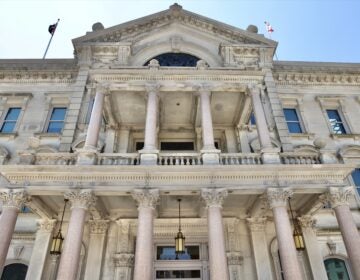Raising minimum wage won’t flip the Senate

Incumbent U.S. Sen Pat Toomey
Will minimum wage have maximum impact on this year’s election results?
Labor groups hope so, and they’ve released new data from Public Policy Polling to suggest that voters in Pennsylvania are less likely to cast their vote for a candidate who opposes a substantial increase in the starter wage.
Before campaign staff decide to rewrite their candidate’s policy platform, a brief history lesson is in order.
In 2014 as in 2016, control of the U.S. Senate was up for grabs, and there were also fiercely contested gubernatorial races in blue and purple states. PPP, a left-leaning polling shop based in Raleigh, North Carolina, released a memo a few weeks before Election Day that claimed opposition to minimum wage hikes could be a “decisive issue” in six key states: Illinois, Wisconsin, North Carolina, Iowa, Kentucky, and Louisiana. Skepticism by the Republican candidate of raising the minimum wage was supposed to reduce their support among voters by as much as 30 points.
In retrospect, this prediction looks a bit silly: The six candidates who were skeptical of or opposed to a higher minimum wage still won their races, in some cases by a large margin. Even beyond this group of six, the minimum-wage-as-wedge-issue strategy flopped in state after state. From Colorado to West Virginia to Florida, opposition to raising the minimum wage was not a kiss of death for candidates.
Based on this track record, will PPP fare any better in 2016? Don’t bet on it. The first problem with the firm’s predictions lies in the wording of the poll questions they’re based upon. In Pennsylvania, for instance, voters were asked whether they’d be more or less likely to support a candidate based on their stance on raising the minimum wage. Crucially, voters were not given an option to indicate that a candidate’s stance on minimum wage doesn’t make much difference to them one way or the other.
This matters. My organization used Google’s consumer survey tool to survey 500 Pennsylvanians who plan to vote this fall. Over 40 percent of respondents said they were no more or less likely to vote for a candidate based on their opposition to minimum wage. Those who were swayed based on a candidate’s minimum wage stance were of roughly equal proportion — essentially cancelling each other out.
The other problem with PPP’s analysis is that their poll questions emphasize the purported benefits of a higher minimum wage, while leaving out the costs. It’s an unacceptable omission: According to the University of New Hampshire, 76 percent of labor economists believe that a dramatic increase in the starter wage will have a negative effect on the number of jobs available.
In our Google survey of Pennsylvanians, we asked respondents if they’d support a $12 minimum wage knowing that it would cause some small businesses to close, and others to reduce staffing levels. Just one in five said they’d still support the policy, with the vast majority of respondents either opposed or undecided.
Pennsylvania voters’ awareness of the drawbacks of a higher minimum wage may be heightened by what’s happening in the state’s neighbor to the north. New York is in the midst of a series of dramatic wage hikes, with the starter wage rising as high as $15 by 2018 for businesses in New York City. Already, small businesses have cut staff or closed their doors; most recently, a neighborhood establishment in Brooklyn called the Del Rio Diner closed after 40 years in business. The owner explained that his blue collar customers couldn’t afford the higher prices necessary to offset the cost of $15.
Labor groups will no doubt continue to promote this flawed poll — just as they promote the faulty notion that you can raise the starter wage without reducing job opportunities. But Pennsylvania voters are savvy enough to know that if it sounds too good to be true, it probably is.
—
Michael Saltsman is research director at the Employment Policies Institute, which receives support from businesses, foundations, and individuals.
WHYY is your source for fact-based, in-depth journalism and information. As a nonprofit organization, we rely on financial support from readers like you. Please give today.



